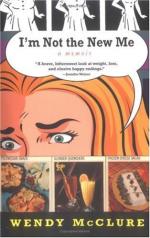They had ample time, for they were sixteen days at sea, and it was foul weather till within a hundred miles of New York. The “Dimbula” picked up her pilot, and came in covered with salt and red rust. Her funnel was dirty gray from top to bottom; two boats had been carried away; three copper ventilators looked like hats after a fight with the police; the bridge had a dimple in the middle of it; the house that covered the steam steering-gear was split as with hatchets; there was a bill for small repairs in the engine room almost as long as the screw-shaft; the forward cargo hatch fell into bucket staves when they raised the iron crossbars; and the steam capstan had been badly wrenched on its bed. Altogether, as the skipper said, it was “a pretty general average.”
“But she’s soupled,” he said to Mr. Buchanan. “For all her dead weight, she rode like a yacht. Ye mind that last blow off the Banks? I was proud of her.”
“It’s vara good,” said the chief engineer, looking along the dishevelled decks. “Now, a man judging superficially would say we were a wreck, but we know otherwise—by experience.”
Naturally, everything in the “Dimbula” stiffened with pride, and the foremast and the forward collision bulkhead, who are pushing creatures, begged the steam to warn the port of New York of their arrival. “Tell those big boats all about us,” they said. “They seem to take us quite as a matter of course.”
It was a glorious, clear, dead calm morning, and in single file, with less than half a mile between each, their bands playing, and their tugboats shouting and waving handkerchiefs beneath, were the “Majestic,” the “Paris,” the “Touraine,” the “Servia,” the “Kaiser Wilhelm II.” and the “Werkendam,” all statelily going out to sea. As the “Dimbula” shifted her helm to give the great boats clear way, the steam (who knows far too much to mind making an exhibition of himself now and then) shouted:
“Oyez! oyez! oyez! Princes, Dukes, and Barons of the High Seas! Know ye by these presents we are the ‘Dimbula,’ fifteen days nine hours out from Liverpool, having crossed the Atlantic with four thousand ton of cargo for the first time in our career. We have not foundered! We are here! Eer! eer! We are not disabled. But we have had a time wholly unparalleled in the annals of shipbuilding. Our decks were swept. We pitched, we rolled! We thought we were going to die! Hi! hi! But we didn’t! We wish to give notice that we have come to New York all the way across the Atlantic, through the worst weather in the world; and we are the ‘Dimbula.’ We are—arr—ha—ha—ha-r-r!”
The beautiful line of boats swept by as steadily as the procession of the seasons. The “Dimbula” heard the “Majestic” say “Humph!” and the “Paris” grunted “How!” and the “Touraine” said “Oui!” with a little coquettish flicker of steam; and the “Servia” said “Haw!” and the “Kaiser” and the “Werkendam” said “Hoch!” Dutch fashion—and that was absolutely all.




